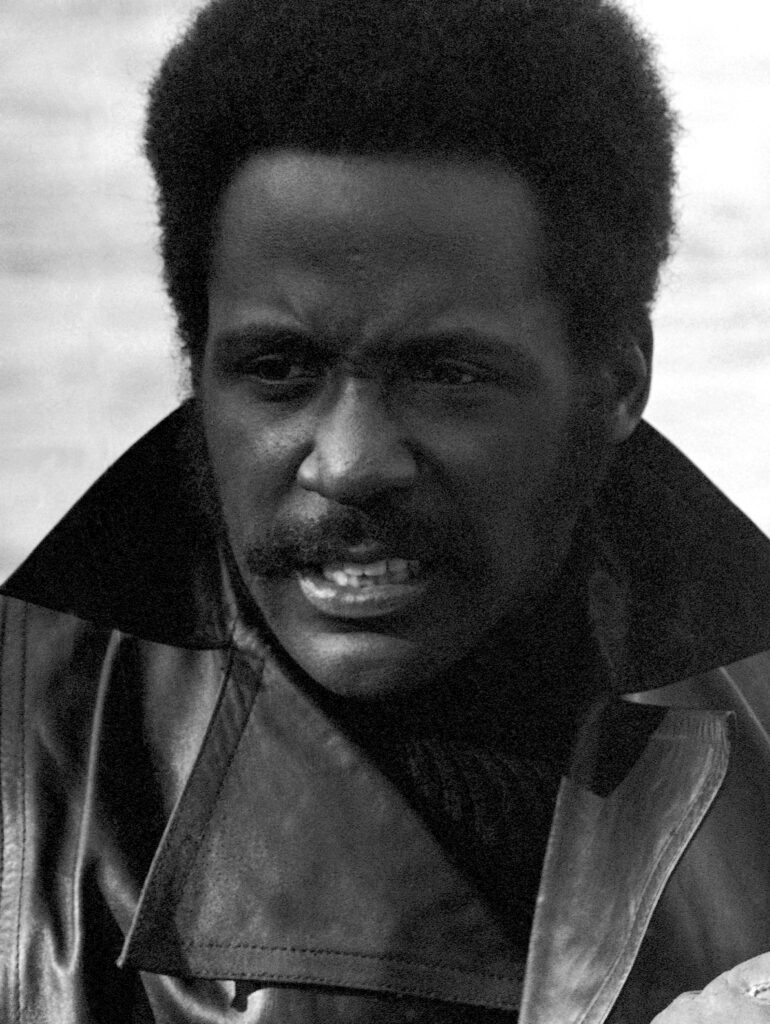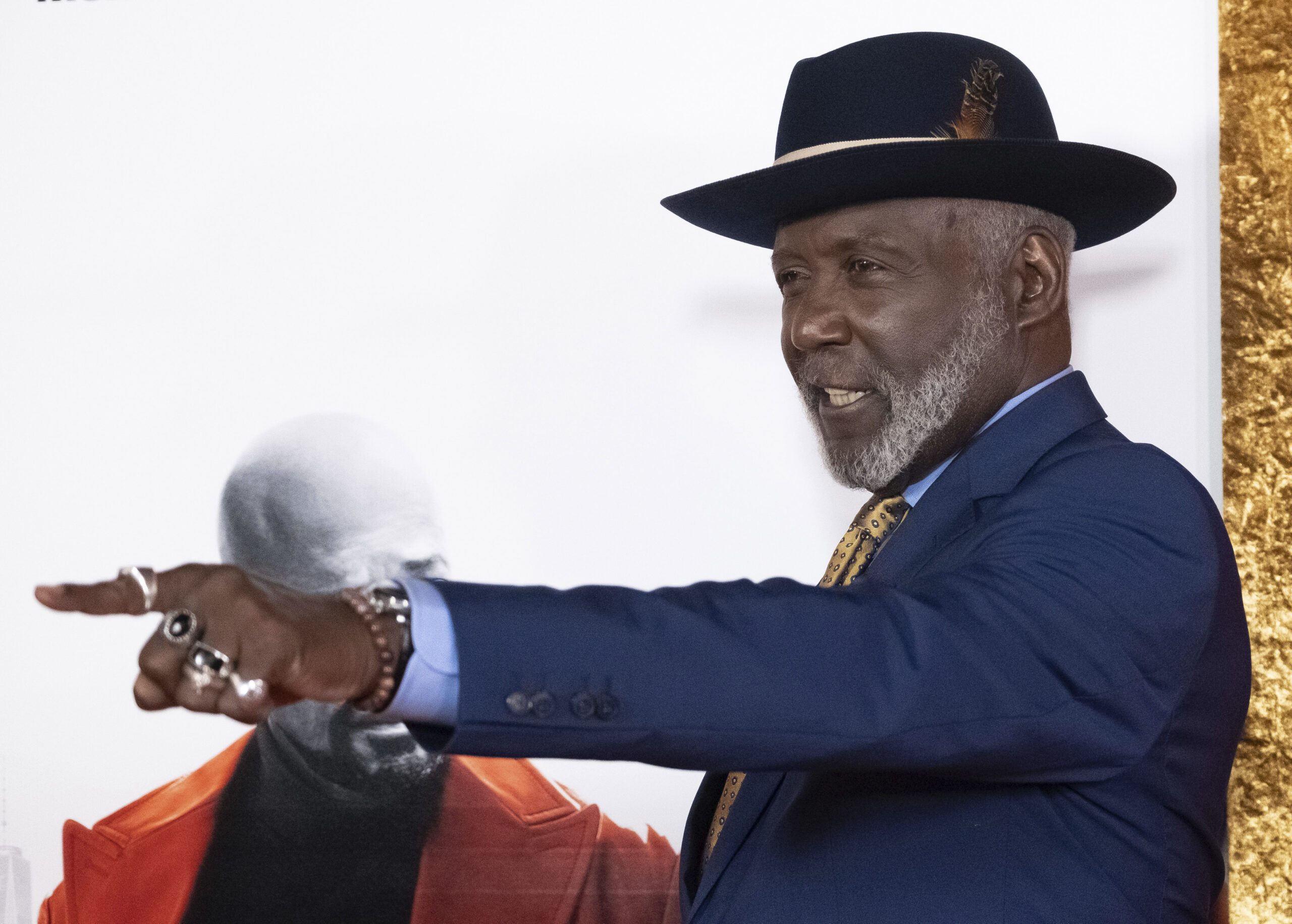The day that Richard Roundtree died, I was traveling between New York City and Washington, D.C., when my buddy Gail exclaimed, “Did you see that Richard Rountree passed?” Before I could respond that yes, I had read the sad news, Gail whipped out her mobile phone and showed me a photograph of her at age 17 posing with Roundtree. It was taken in 1972 at the National Black Political Convention in Gary, Indiana. “Shaft’s Big Score,” was released that year. The original “Shaft” movie was released the year before.
The movies catapulted Roundtree, then 29, to stardom as he portrayed the handsome, supercool New York private detective decked out in leather and exuding sexual energy and confident bravado. He was at the height of his new-found fame when my friend met him.

Gail had been introduced to Roundtree by Isaac Hayes, with whom she’d been an ardent fan since age 15 when she created a painting of him for a school project. She presented the art to Hayes on stage during a Cleveland concert, and that sealed a tight, lifelong relationship with Hayes for Gail and her family.
As Gail conveyed her Roundtree encounter (Hayes took the photograph), her eyes sparkled and accolades flowed. “He was handsome and charming and fun and playful,” she gushed. “He presented well.”
Gail echoed the admiration that millions of female and male fans as well as colleagues had for the actor who died last week of pancreatic cancer at age 81.
Soon after starting my long tenure at Ebony magazine, I learned that Roundtree launched his career as a model with the Ebony Fashion Fair traveling show in the early 1960s. I can only imagine the late Mrs. Eunice Johnson eyeing the young Roundtree up and down before deciding he was just right to model the show’s world-renowned couture.
During an interview, Roundtree said his short time with Fashion Fair was “the most fun experience of my career,” adding that “the place would go crazy with applause” when he walked the runway. The “79-city tour in 60 days” show ended in Los Angeles, where Bill Cosby hosted a party for the models. Then well-known for his leading role in “I Spy,” Cosby asked Roundtree about his aspirations. When the young man said he was interested in acting, Cosby advised him to head to New York City and “learn the craft” with the Negro Ensemble Company (NEC).
While training with NEC in New York, Roundtree drove a cab, did other odd jobs and appeared in ads for Sears and Montgomery Ward catalogs, and some liquor companies. His first theatrical role was portraying Jack Johnson in “The Great White Hope” in 1967. A few years later, he auditioned with filmmaker Gordon Parks and landed the lead role in “Shaft.” The character mesmerized and excited moviegoers with his good looks, rich chocolate skin and debonair swagger.
The equally popular theme song was written and performed by Isaac Hayes, who won the 1972 Academy Award for best original song. The rhythmic score and memorable lyrics were sung by fans around the world.
During that period of Black pride and the fight for civil rights, some criticized “Shaft” and other such films as blaxploitation, though that term made me uncomfortable. It also made Roundtree uncomfortable, as he revealed during an interview. “I had the opportunity of working with the most refined gentleman maybe that I’ve ever known, Gordon Parks. He was one of the pioneers in the film industry,” Roundtree said.
“Consequently, I have an objection to the phrase ‘exploitation’ being used in connection with Gordon Parks . . . that has always struck me as a problematic aspect of the situation.”
Roundtree went on to explain that nobody was being exploited or taken advantage of, and that Shaft opened opportunities for many to “break into the industry,” including filmmakers and actors. “When I look at the situation as a whole, I see it as a positive,” he said.
Roundtree starred in two Shaft sequels, “Shaft’s Big Score!” (1972) and “Shaft in Africa” (1973). He also played the role of Shaft in a CBS television series in 1973 and 1974, and alongside Charlton Heston and Ava Gardner in “Earthquake” (1974). The following year he played the title role in “Man Friday” with Peter O’Toole. In the celebrated Alex Haley 1977 miniseries “Roots,” he had a key role.
Throughout the years, Roundtree stayed exceptionally busy, starring or appearing in 150 films and television shows. In the 1981 Korean war film, “Inchon,” he appeared opposite Laurence Olivier, and in 1984 he starred as a private detective in “City Heat,” with Clint Eastwood and Burt Reynolds. He also starred as a doctor in the soap opera “Generations” (1989-1991).
In the 1990s, Roundtree appeared in numerous television series, including 60 episodes of “Generations” soap opera and in “Beverly Hills, 90210,” as well as the lauded movie Seven, with Morgan Freeman and Brad Pitt. He also appeared in the comedy George of the Jungle, in the drama “413 Hope St.,” and as Booker T. Washington in the 1999 television movie “Having Our Say: The Delany Sisters’ First 100 Years.”
In the 2000s, Roundtree again played John Shaft in a new “Shaft” movie in which Samuel L. Jackson portrayed the title character’s nephew. He also guest-starred in several episodes of “Desperate Housewives” and the science fiction drama “Heroes,” had a supporting role in “Speed Racer, and recurring role on “Family Reunion.” In BET’s popular “Being Mary Jane” (2013-2019), he co-starred as father of lead character Mary Jane Paul played by Gabrielle Union.
Roundtree also co-starred in the 2019 comedy film “What Men Want” before again portraying the elder John Shaft in another sequel along with Samuel L. Jackson as his son.
Yes, Roundtree enjoyed a flourishing career that took him far beyond his action hero beginnings. Nevertheless, also had setbacks in his busy, successful life. His first marriage ended in divorce in 1973, and his second in 1998.
He also was diagnosed with breast cancer in 1993 and underwent a double mastectomy and chemotherapy. Roundtree spoke openly about it and probably saved some lives with his breast cancer awareness activism. He said that “10 to 15 men” came out of the closet about their own breast cancer episodes. “A flight attendant told me I saved her husband’s life,” he recalled.
Two months ago, Roundtree was diagnosed with pancreatic cancer.
Richard Roundtree leaves a rich legacy for his five children, and for Black American filmmakers and actors as well as his fans and admirers. He was an intelligent, well-spoken man with humble beginnings in New Rochelle, New York, who dropped out of Southern Illinois University (football scholarship) to pursue a modeling and acting career.
Many will forever remember him as the stylish, tough-talking private detective Shaft who was one of film’s first leading Black men. We also should recognize the breadth and depth of his 50-year career that opened doors in an industry that often still overlooks diverse talent.








